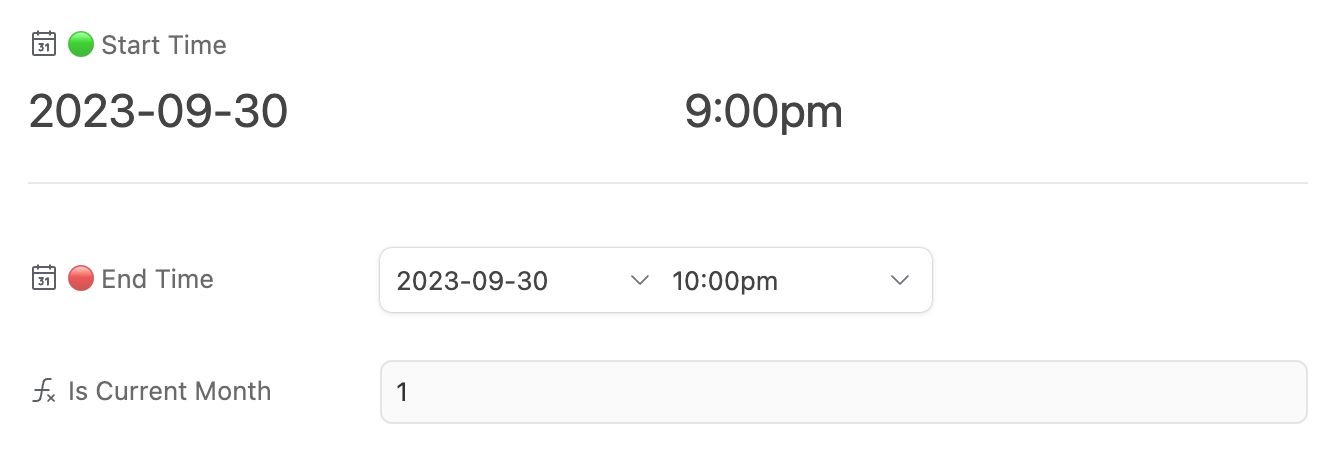I have the following formula to set the entry for "Current Month":
DATETIME_FORMAT({🟢 Start Time}, 'YYYY-MM') = DATETIME_FORMAT(NOW(), 'YYYY-MM')
It seems to be working just fine, however the last entry from last month is setting the formula to 1.

If I change the start time (right now) to 6:30pm or anything older, the formula gets set to 0. My first thought was a timezone issue, but I confirmed on the Start Time field that it is set to my timezone (CDT).
Am I missing something obvious?


